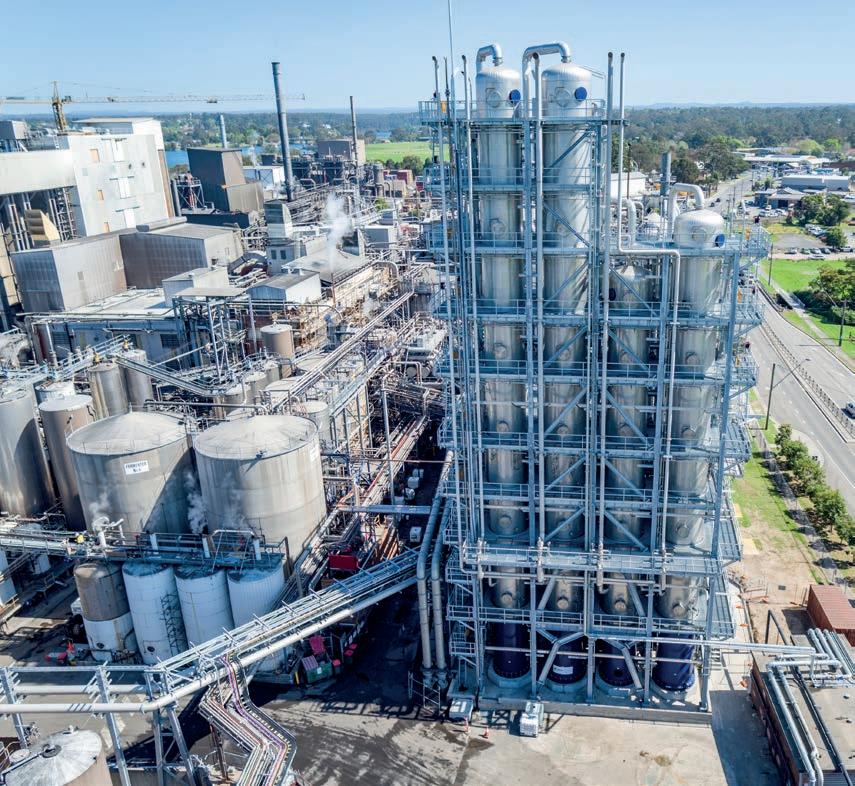International Energy Week
Q&A
Towards a just transition The world is on a road to net zero, with countries travelling at different paces. However, a ‘just transition’ is a key priority, according to Franco Magnani, Global Gas & LNG, Head of Equity Valorization, Eni, and member of the International Energy Week 2022 Programme Board.* What do you consider is the most important issue for International Energy Week 2022 to address? From the standpoint of an energy company, the most important topic now is how to cope with the need for a ‘just transition’. The price of energy is high at a moment when the debate on decarbonisation is very prominent. To achieve decarbonisation, key decisions will have to be made soon. How do you define Eni’s quest for a ‘just transition’ on the road to net zero by 2050? The way towards transition is made more challenging by a continuously evolving scenario. On one hand, population growth in non-OECD countries implies a significant increase in energy demand. On the other hand, it is necessary to reduce emissions of greenhouse gases (GHGs) to stop climate change. So, different parts of the world of energy end up having very different objectives. OECD countries should promote efficiency and limit GHG impact caused by demand, while nonOECD countries should promote access to energy based on a sustainable energy mix, allowing them to exploit local resources. However, we should bear in mind that for many countries the decarbonisation effort will consist, for many years to come, in curbing the growing trajectory of emissions, rather than pursuing a reduction in absolute terms. The challenge remains global inevitably. Eni is aware of the climate emergency and wants to be an active part of a virtuous path towards carbon neutrality by 2050. The company has adopted a business model that measures emissions along the life cycle of the energy it markets and 20 Petroleum Review | December 2021
Franco Magnani, Global Gas & LNG, Head of Equity Valorization, Eni, and member of the International Energy Week 2022 Programme Board Photo: Eni
is fully committed to being net zero by 2050. Eni will also conform its transition to broader objectives, such as equal dignity, diversity, and pursuing long-term partnerships with the countries and communities that host us, to create shared and lasting value. What measures is Eni taking to reduce methane emissions and decarbonise? Eni will continue to offer decarbonised products developed using proprietary technologies, with a financially robust business model. In 2014 we set ourselves a target to reduce methane fugitive emissions by 80% by 2025. We achieved that target in 2019 and are continuing to work on it. By 2030 we will expand our zero/ low-carbon business – our biorefineries will double by 2024 and will continue to grow; renewables will be at 15 GW and our retail customer base will reach 15mn; production of biomethane, wasteto-fuel products, blue and green hydrogen will grow as well. A more and more decarbonised upstream will reach plateau in 2025, followed by a downward trend towards 2050, mainly in the oil component. In the following decades we will continue our diversification and expansion in the low-carbon businesses, while upstream will follow demand evolution, shifting toward gas. Why is gas important and what are Eni’s blue and green hydrogen development plans? We believe that gas is a necessary source in the transformation of the energy sector, allowing transition to be inclusive from a social and an economic point of view. It can be used as a lower-emitting tool to bridge our pathway to a net zero world, as a substitute for coal. But
gas is not only that. Thanks to its flexibility, gas can facilitate the introduction of larger shares of intermittent renewable energies, further accelerating the transition process. We see hydrogen, both renewable and low-carbon, as a viable option to decarbonise current consumption in refining and chemicals, and to reduce emissions from hard-to-abate sectors, replacing fossil sources. Eni’s strategy currently comprises all low-carbon and renewable hydrogen production pathways – natural gas reforming with carbon capture and storage (CCS), production from renewable electricity, and technologies for production of fuel from waste. On low-carbon hydrogen, our Italian project aims to realise a CCS hub that will capture and store the CO2 emissions of existing refineries, power plants and other hard-to-abate industries, with additional potential to produce large volumes of low-carbon hydrogen. Eni is also evaluating the feasibility of green hydrogen projects in its refining and biorefining sites. We are active in leading-edge projects to promote the use of hydrogen. In the UK, we are part of the HyNet project, which includes hydrogen production and distribution to industry for fuel switching, developing a regional hydrogen market within a dedicated supply network. It will also incorporate direct capture of emissions from hard-to-abate industries that cannot switch fuel. Our submission within the HyNet Consortium Cluster has been selected as one of the two priority projects (Track 1) out of five competing in the ‘cluster sequencing bid’ launched by BEIS (the Department of Business, Energy and Industrial Strategy) in the UK. This will allow Eni UK and Hynet to proceed as one of the first UK industrial clusters to apply CCS and materially reduce UK carbon emissions. We are also installing hydrogen fuel stations along Italy’s main road connections to Europe, and are evaluating feasibility of hydrogen projects in Egypt, Algeria and Kazakhstan. Why is circularity important for new business developments? For Eni, evolution towards a circular economy is one of the main answers to the climate challenge. Reducing and reusing waste reduces utilisation of natural resources and allows use of renewable and sustainable







